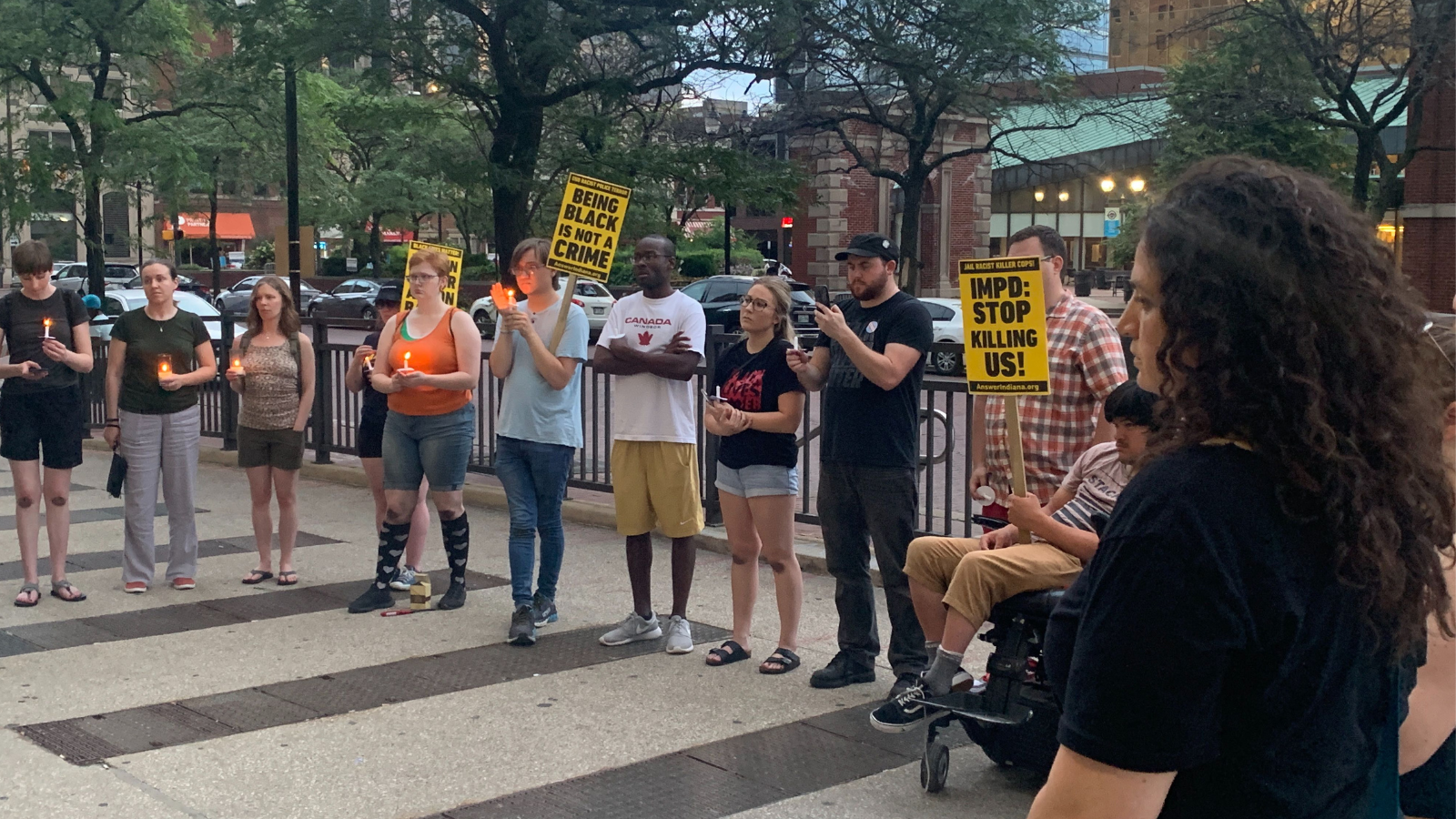On June 29, community members and organizers gathered at the Indianapolis City-County Building to commemorate the second anniversary of the police killing of Aaron Bailey. Two Indianapolis Metropolitan Police Department officers shot and killed Bailey, 45, on June 29, 2017, following a late-night traffic stop and brief vehicle pursuit.
Police officers Michal P. Dinnsen and Carlton J. Howard fired 11 shots into the side and back of the vehicle, alleging Bailey was in possession of a firearm. No weapons were found on the scene. The officers never received any disciplinary actions, and were placed on administrative leave. Following an investigation by state and federal authorities, the Department of Justice closed their review without prosecution, an insult to Bailey’s family and community.
These killer cops still patrol the streets of Indianapolis today.
“When I see a police officer, I don’t think, ‘that’s a peaceful person.’ I make an assumption that [the career] attracts violent people,” said Lena Burt, who attended the vigil in support of the Indianapolis Mental Health Task Force, an initiative to create an alternative to police intervention in mental health crises.
Satchuel Cole, friend of the Bailey family and organizer with IMPD Transparency, expressed her sorrow and determination for the future. “We got further in this case than we did with any other, with a special prosecutor and no grand jury, but we definitely didn’t get what we were wanting by any means,” Cole said. “IMPD Transparency was spawned from the Aaron Bailey case: I continue to do work to hold IMPD transparent, we’re still working to expose the cops that are the worst of the worst, and continue the work to abolish the police.”
Throughout the day, community members covered the sidewalk perimeter with chalk memorials and indictments of police brutality.
As the sun set, a candlelight vigil was held and speakers from Jewish Voice for Peace, ANSWER Coalition, IMPD Transparency, and the Bailey family each shared their piece on the danger of “public servants” who end Black lives at will.
“Aaron Bailey was killed by two IMPD officers, and those officers are representatives of this global system of imperialism and state terrorism. I highlight the global nature of state violence because every single person here represents millions more across the United States and the entire globe, who stand with us in solidarity and support,” said Noah Leninger, co-coordinator of ANSWER Indiana.
“The only path to real safety is solidarity — costly solidarity,” said M. Bird of Jewish Voice for Peace.
Erica Bailey, Aaron’s daughter, choked back tears as she thanked those who attended the vigil by tightly embracing each person present.
During the vigil, police filed in and out of the building nearby with smirks on their faces. These officers, as Cole reminded the crowd, “are modern-day slave-catchers, and modern-day lynchmen, and they lynched Aaron Bailey with impunity.”
Indiana birthed and rebirthed the Ku Klux Klan in the 19th and 21st centuries, respectively; it is not hyperbolic to say that Indiana police are modern-day lynchmen, because it is their proudest heritage. Two years later, innumerable phone calls, rallies, and candles burnt, Aaron Bailey’s family and community reel from his loss and are forced to contend with justice deferred.
This article, written by Cambria York, first appeared in Liberation News.
Featured photo: The crowd gathered outside of the City-County Council. Credit: ANSWER Indiana.

